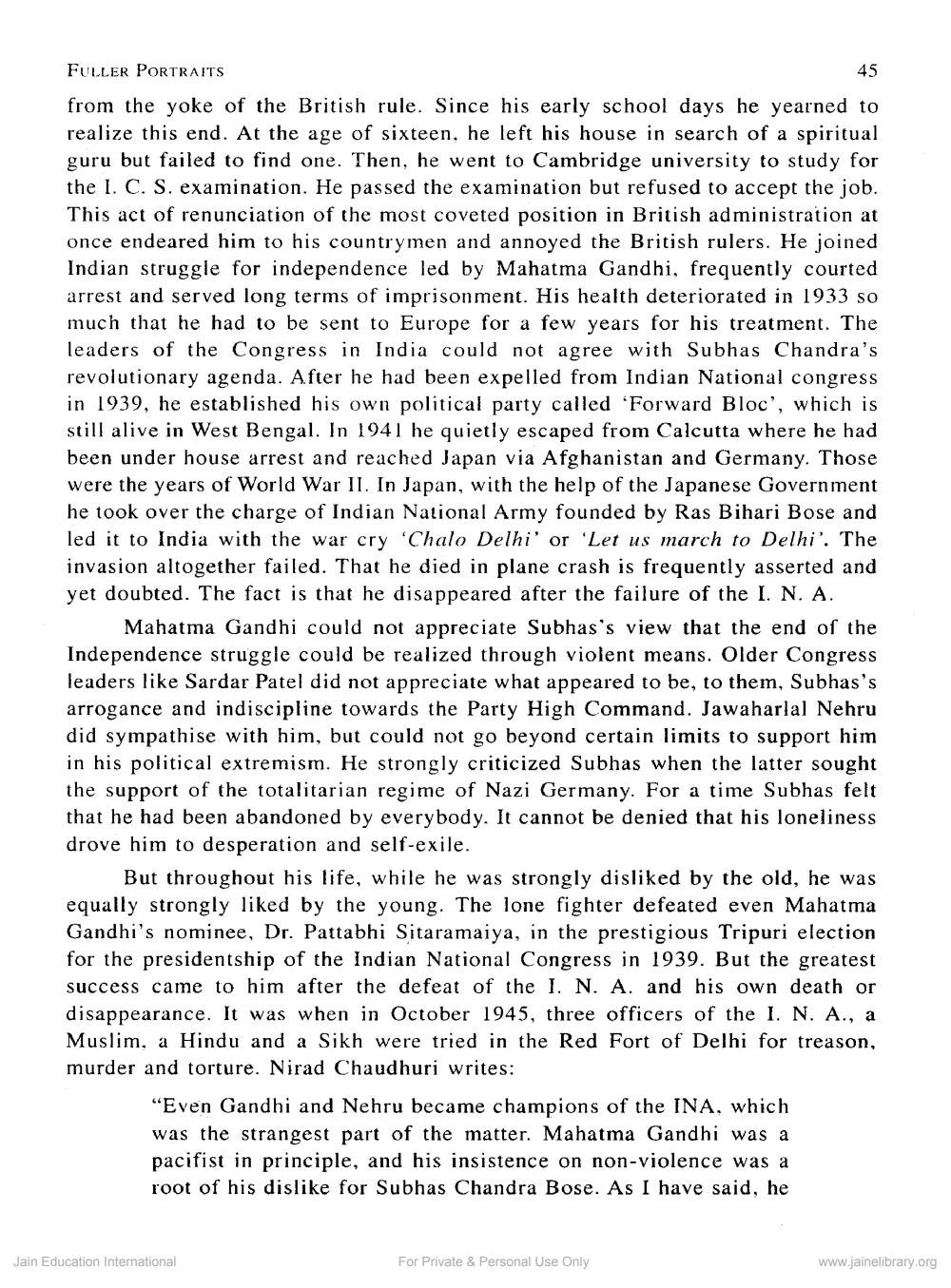________________
45
FULLER PORTRAITS from the yoke of the British rule. Since his early school days he yearned to realize this end. At the age of sixteen, he left his house in search of a spiritual guru but failed to find one. Then, he went to Cambridge university to study for the I. C. S. examination. He passed the examination but refused to accept the job. This act of renunciation of the most coveted position in British administration at once endeared him to his countrymen and annoyed the British rulers. He joined Indian struggle for independence led by Mahatma Gandhi, frequently courted arrest and served long terms of imprisonment. His health deteriorated in 1933 so much that he had to be sent to Europe for a few years for his treatment. The leaders of the Congress in India could not agree with Subhas Chandra's revolutionary agenda. After he had been expelled from Indian National congress in 1939, he established his own political party called 'Forward Bloc', which is still alive in West Bengal. In 1941 he quietly escaped from Calcutta where he had been under house arrest and reached Japan via Afghanistan and Germany. Those were the years of World War II. In Japan, with the help of the Japanese Government he took over the charge of Indian National Army founded by Ras Bihari Bose and led it to India with the war cry 'Chalo Delhi' or 'Let us march to Delhi'. The invasion altogether failed. That he died in plane crash is frequently asserted and yet doubted. The fact is that he disappeared after the failure of the I. N. A.
Mahatma Gandhi could not appreciate Subhas's view that the end of the Independence struggle could be realized through violent means. Older Congress leaders like Sardar Patel did not appreciate what appeared to be, to them, Subhas's arrogance and indiscipline towards the Party High Command. Jawaharlal Nehru did sympathise with him, but could not go beyond certain limits to support him in his political extremism. He strongly criticized Subhas when the latter sought the support of the totalitarian regime of Nazi Germany. For a time Subhas felt that he had been abandoned by everybody. It cannot be denied that his loneliness drove him to desperation and self-exile.
But throughout his life, while he was strongly disliked by the old, he was equally strongly liked by the young. The lone fighter defeated even Mahatma Gandhi's nominee, Dr. Pattabhi Sitaramaiya, in the prestigious Tripuri election for the presidentship of the Indian National Congress in 1939. But the greatest success came to him after the defeat of the I. N. A. and his own death or disappearance. It was when in October 1945, three officers of the I. N. A., a Muslim, a Hindu and a Sikh were tried in the Red Fort of Delhi for treason, murder and torture. Nirad Chaudhuri writes:
"Even Gandhi and Nehru became champions of the INA, which was the strangest part of the matter. Mahatma Gandhi was a pacifist in principle, and his insistence on non-violence was a root of his dislike for Subhas Chandra Bose. As I have said, he
Jain Education International
For Private & Personal Use Only
www.jainelibrary.org




